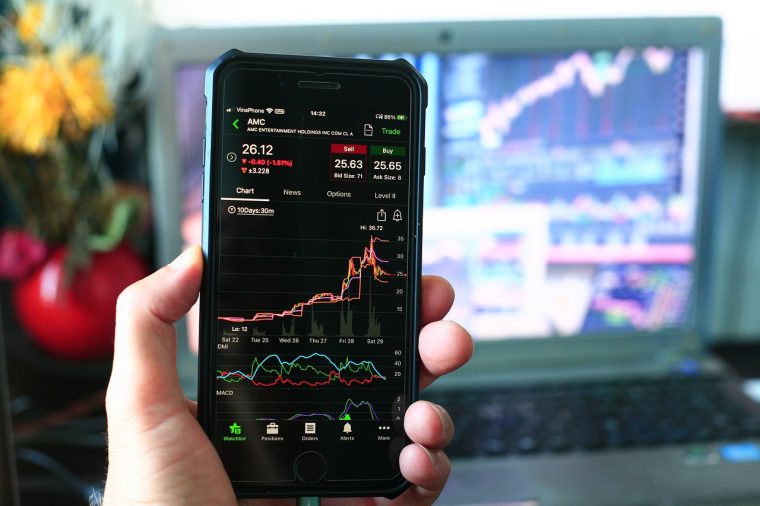
In response to the 2021 meme-stock craze, federal regulators are making moves to impose stricter regulations on retail investment firms, particularly those that use advanced analytics to encourage customers to trade.
The Securities and Exchange Commission (SEC) is set to propose a new rule that would hold algorithms accountable for predicting, guiding, or forecasting investors’ behavior, potentially subjecting them to the same standards as investment advice, according to a recent report by The Wall Street Journal.
This proposed rule aims to address conflicts of interest created by these algorithms and ensure that brokers and advisers neutralize or eliminate these conflicts.
The SEC’s intent behind the rule proposal is to prevent the use of emerging technologies from undermining the legal obligation of investment firms to act in the best interests of their clients, the report said.
$HOOD is a problem
Apps Like #Robinhood Make Trading Fun, But SEC Fears It Is Costing Investors
Regulators consider new limits on apps in wake of #meme-stock boom— Don Dion (follow me and read the pinned) (@DonDion35974931) July 26, 2023
This proposal is a result of a two-year review by the SEC into Wall Street’s “digital engagement practices” following the turbulent trading period involving GameStop and other meme stocks back in 2021.
The significant trading activity during that period sparked congressional hearings, a comprehensive SEC staff report, and a series of proposals aimed at changing the way stock trading functions behind the scenes.
Regulators grew concerned that brokerage apps, through the use of push notifications, colorful graphics, and gamelike features, could tempt investors to trade excessively, potentially harming their financial well-being.
While frequent trading may benefit market intermediaries, individual investors tend not to gain from such behavior.
The rise of Online Brokerage Firms Has Created New Challenges
The current SEC regulations already prohibit retail brokers from prioritizing their own financial interests over those of their customers when providing investment recommendations.
Brokers must consider factors such as the investor’s risk tolerance, liquidity needs, and investment time horizon instead of solely pushing products that generate high commissions or fees.
However, the rise of self-directed platforms operating primarily online has led to a shift in how investment advice is given.
The rise of Robinhood over the pandemic has been meteoric and has benefited from retail investors having more time and money to invest. As the firm looks to IPO it has 18m customers #stocks #markets pic.twitter.com/31kSdfjWVc
— Michael A. Gayed, CFA (@leadlagreport) August 1, 2021
Following the GameStop trading frenzy, regulators questioned whether the use of engaging features on trading platforms, like a list of “top mover” stocks, effectively functioned as investment recommendations.
Robinhood has voiced its disagreement, stating that it merely presents complex information in a user-friendly and accessible way.
“Robinhood simply aggregates and presents complex information in ways that customers find useful, through a mobile app and website interface that is understandable and convenient,” the firm said in a comment letter to the SEC.
The rule proposal set to be discussed by the SEC on Wednesday goes beyond regulating outright recommendations made by brokers and advisers.
It encompasses any analytical tools used by investment firms to predict or guide investment-related behaviors.
If such a “covered technology” factors in the firm’s own interests in interactions with investors, a conflict of interest would exist under the proposed rule, the WSJ report said.
It added that brokers and advisers would be required to evaluate whether such conflicts could lead to their interests taking precedence over their customers’ interests and take steps to eliminate these effects.
They would also need to develop written policies and procedures outlining their compliance with these requirements.
In addition to this rule proposal, the SEC is also scheduled to vote on another rule proposed last year, which would require publicly traded companies to disclose major cybersecurity breaches to their investors.
If approved by a majority of the SEC’s five commissioners, companies would need to file an 8-K form within four business days of determining that a cyber incident is significant for investors.
However, they could extend this timeframe if immediate disclosure posed a risk to national security or public safety, as determined by the US attorney general.
What Was the Role of Robinhood in the 2021 Meme Stock Frenzy
In 2021, the financial markets witnessed a phenomenon known as the meme stock frenzy.
This frenzy was characterized by a surge in the prices of stocks that gained popularity on social media platforms such as Reddit’s WallStreetBets.
These stocks were often heavily shorted by institutional investors, leading to a “short squeeze” when retail investors banded together to drive up the prices, causing significant losses for those who had bet against the stocks.
One key player in the meme stock frenzy was Robinhood, a popular trading app that gained widespread attention during the GameStop saga earlier in the year.
Robinhood became a focal point as it was seen as both an enabler and a restrictor of the retail investors’ ability to participate in this frenzy.
On one hand, Robinhood played a vital role in the frenzy by providing a user-friendly platform that allowed retail investors easy access to the stock market.
However, Robinhood also faced severe backlash when it suspended trading for certain stocks, including GameStop, during the peak of the frenzy.
This action was met with accusations of siding with Wall Street and betraying its users.
The move sparked outrage and fueled the narrative that the system was rigged against retail investors.